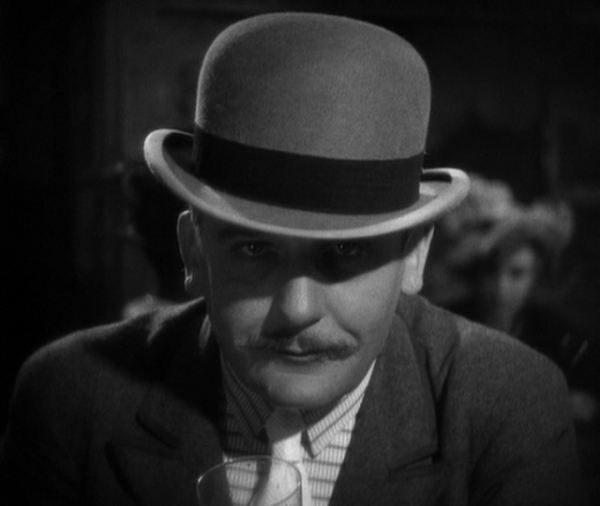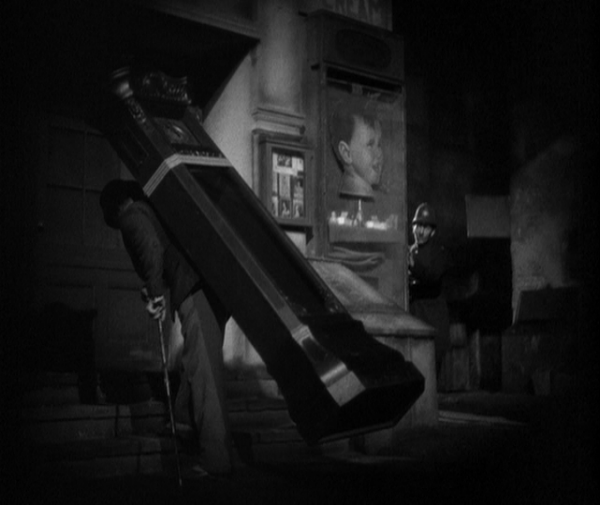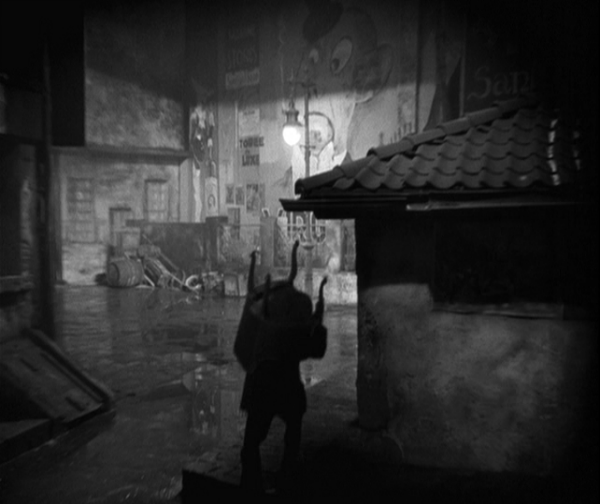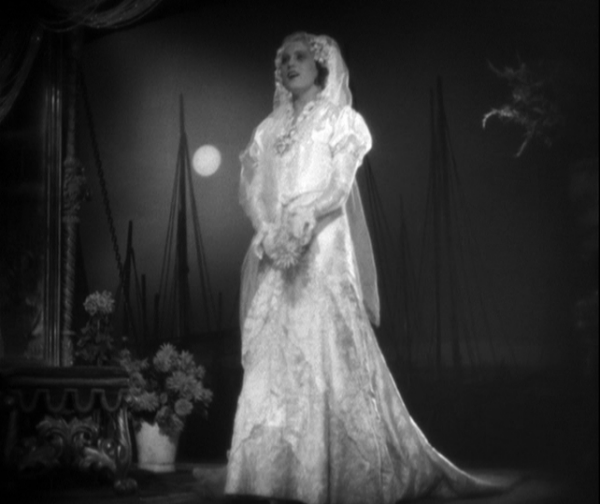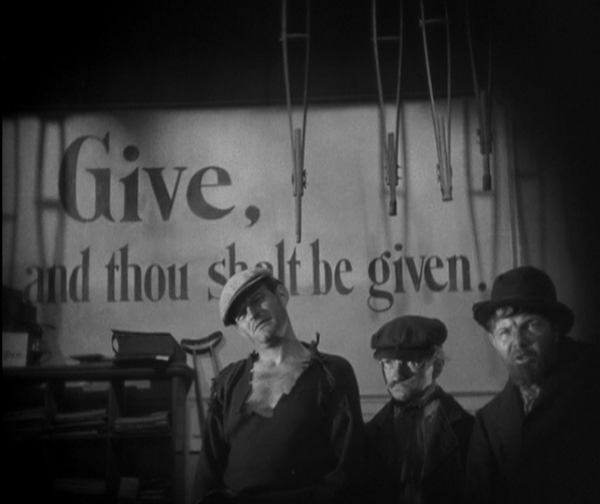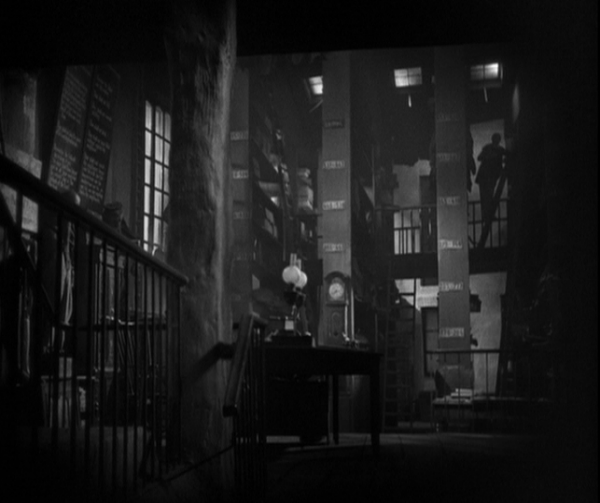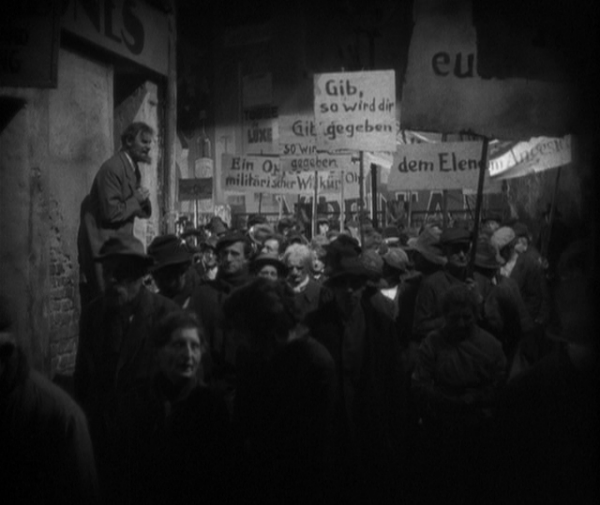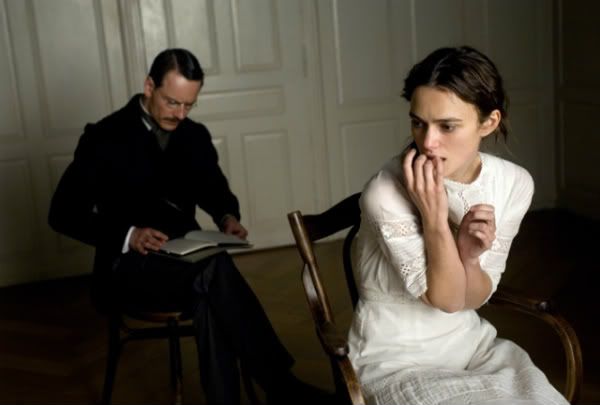
A big disappointment. Based on a play and script by Christopher Hampton, A Dangerous Method feels more like a stuffy stage play than a Cronenberg film. The problem with Hampton's script is that it fixates on the drama of three main characters - Freud, Jung and Sabina Spielrein, there is no room for historical background of the early 20th century, characters fantasies or anything else. It is nice to see Viggo Mortensen stretching his acting ability a bit while buried in suit, pipe, fake nose and dark contacts, stubbornly professing human sexuality as the root of all psychological problems. Michael Fassbender is adequate as young Jung, a family man, thrown into exercising 'talking therapy' on Spielrein and then moving into hanky pankies. Keira Knightley has no range or physique to do a sexually dysfunctional young woman justice (to her credit, she does an amazing human barracuda impression unintentionally).
I wished that at least some of the dream talks among them would materialize on screen, to give some Cronenberg touch- especially Jung's dream of a horse suspended in the air and a heavy log placed in the way and keeps the horse advancing forward and Freud suggests, "the log is, perhaps, your penis?" No luck. Berg keeps everything too classy.
Only interesting part is when Hampton and Berg treating Freud as a neurotic Jew trapped in a society where everyone's poised to tear him down when given a chance. Hence, his unflinching stubbornness in his theories. This is a masterpiece theater with a brief nudity of a skinny flat chested girl. Thumbs down.
